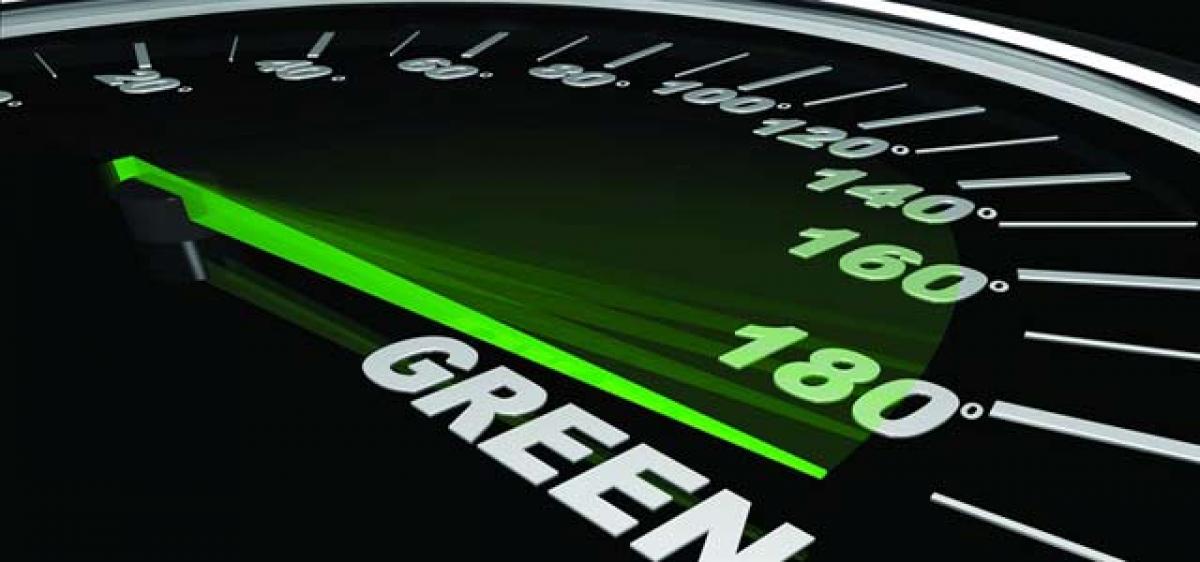Live
- Russia provided North Korea with anti-air missiles in exchange for troop deployment
- PCB appoints Azhar Ali as head of youth development
- Deepam-2 Scheme Reaches 5 Million Beneficiaries in Three Weeks, says Nadendla Manohar
- Will RG Kar tragedy impact Bengal bypoll results?
- BGT 2024:25: Josh Hazlewood picks four as Australia bundle out India for 150
- BRS rallies support for Lagacharla ‘victims’
- COP29: Scientists, artists, faith leaders call for greater commitment to delivery of climate finance
- Woman donates liver to husband, saves life
- Mechanic Rocky Review: Thrilling Action Film with Twists and Great Performances
- Ponguleti Sudhakar Reddy rubbishes Rahul Gandhi's claims on Modi and Adani
Just In
Ford Survey reveals fuel-efficient driving habits among Indians


In a recent survey by Ford Motor Company, Indian drivers were asked about their driving habits and fuel efficiency knowledge. When asked about their driving habits, Ninety-five percent claimed they knew how to drive their car for maximum fuel efficiency, and 96 percent said they make a concerted effort to drive efficiently on a daily basis.
In a recent survey by Ford Motor Company, Indian drivers were asked about their driving habits and fuel efficiency knowledge. When asked about their driving habits, Ninety-five percent claimed they knew how to drive their car for maximum fuel efficiency, and 96 percent said they make a concerted effort to drive efficiently on a daily basis.
- Only 27 percent of drivers know to use GPS to set the best route before starting a drive
- Up to 78 percent of Indian drivers are unaware that using cruise control can save you money at the pump
The fuel efficiency survey commissioned by Ford Motor Company covered 9,500 drivers across 11 markets in Asia Pacific, including 1,023 Indian respondents Basis the survey results, here are some tips that can help Indian drivers keep their tanks fuller for longer!
The survey revealed that 40 percent of Indian drivers don’t not know that harsh accelerating and braking negatively affect their car’s fuel consumption
Fact: Aggressive driving – like braking harshly or taking off too quickly – is a major offender when it comes to wasting fuel.
26 percent of Indian drivers believe that keeping the engine running while idling will save more fuel.
Fact: Turning the engine off and restarting it again is actually more fuel efficient.
78 percent of drivers are unaware about the fuel efficiency benefits of cruise control
Fact: Cruise control is a modern car’s secret weapon against wasting fuel. Maintaining a constant speed means you don’t waste fuel by unnecessarily braking and accelerating – and it also stops you from driving faster than allowed.
27 percent know to use GPS to map the quickest route before heading out.
Fact: Both time and money can be saved by checking your route on your GPS system before you hit the road. If you’re in a Ford and it comes with SYNC 2, save time by pre-entering your most frequent destinations, such as home and work.
52 percent did not know that driving in hilly areas can affect fuel consumption.
Fact: A long drive in the mountains will use more fuel than driving on a flat, straight road. Driving uphill uses more fuel as the vehicle is working slightly harder to go against gravity.
Many respondents were unaware that cold weather (73 percent) and hot weather (64 percent) affect a vehicle’s fuel efficiency.
Fact: Cold weather can reduce your fuel economy significantly as it takes longer for your engine to reach its most efficient temperature, so you may want to rethink any short trips in wintery conditions. In warmer weather, pay attention to when you should use the car’s air-conditioner. The higher the speed, the more wind resistance affects mileage. At highway speeds you’re better off using the air-conditioner, but at lower speeds drive with your windows down.
35 percent of drivers knew that removing heavy items or clutter from the car can help save fuel
Fact: Excess weight in the vehicle can wreak havoc on your car’s fuel consumption. Any extra 20kg you carry can reduce fuel economy by roughly one percent. So try to pack lightly on that next road trip.
One in three drivers were unaware that regular servicing helps save fuel, and more than half (58 percent) were unaware that regularly checking tire pressure also helps save fuel
Fact: Basic knowledge perhaps, but it’s all too easy to forget that a properly maintained vehicle and correctly inflated tires will help stretch your petrol dollar further. While Indian drivers are showing more interest in purchasing fuel efficient vehicles to save them money, the best way to economize on fuel is good driving habits.

© 2024 Hyderabad Media House Limited/The Hans India. All rights reserved. Powered by hocalwire.com






